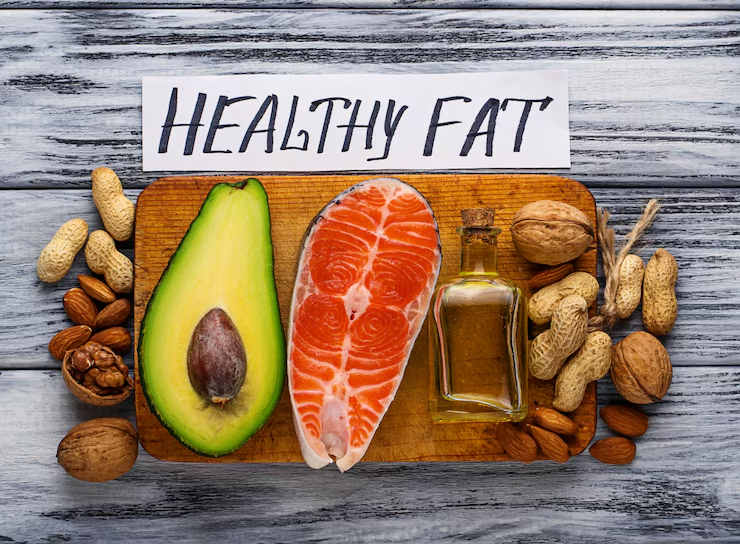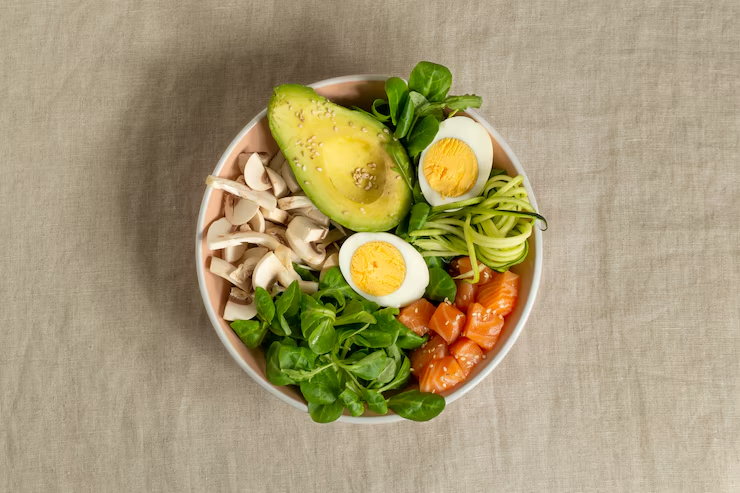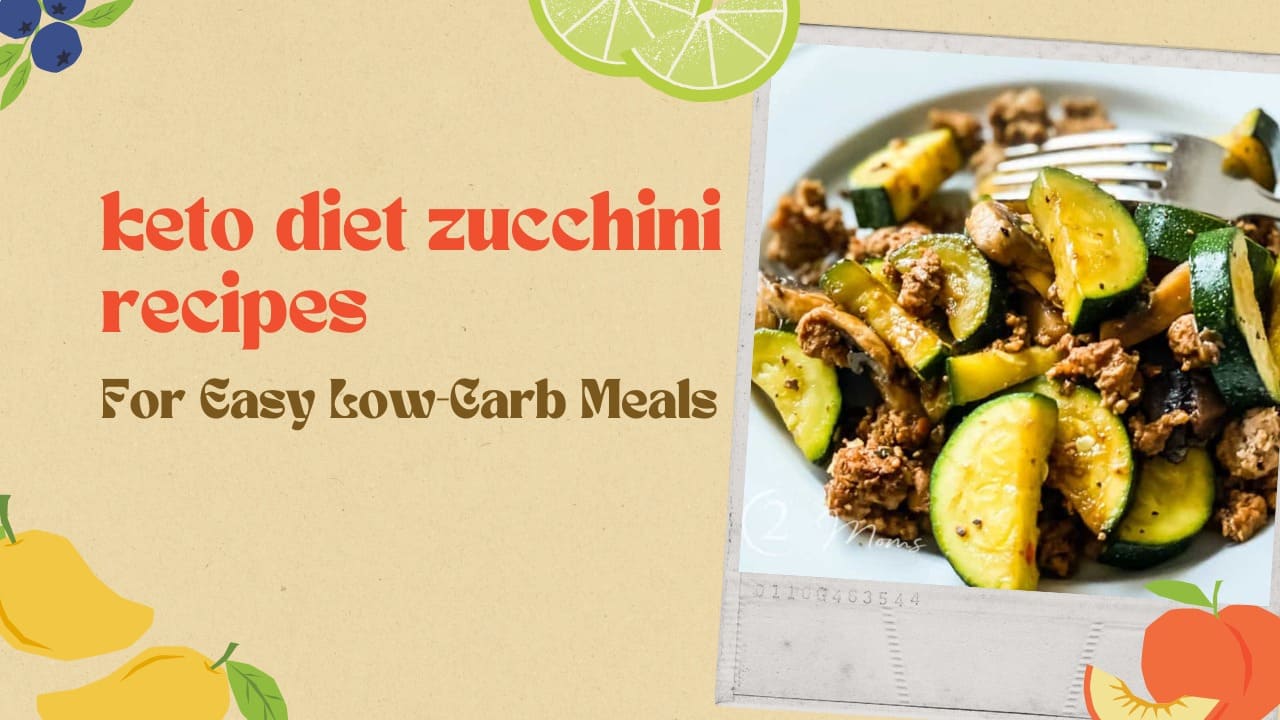Running is a sport that demands stamina, discipline, and mental resilience. Traditionally, runners rely on carbohydrate-rich diets to keep their energy levels high. However, an increasing number of athletes are now exploring a different path—the keto diet for runners—to fuel their long-distance runs and training sessions.
The ketogenic diet emphasizes high fat, moderate protein, and very low carbohydrates. For runners, this means training the body to become “fat-adapted,” using stored fat as a primary energy source instead of quick-burning carbs. Many report increased endurance, steady energy, and reduced inflammation as benefits of switching to the keto diet for runners.
While it may not be ideal for sprinting or explosive performance, the keto diet for runners can be a game-changer for those focused on long-distance running, ultra-marathons, or steady-state cardio. With proper planning and adaptation, it offers a sustainable way to enhance endurance naturally.
In this comprehensive guide, we’ll dive deep into the science of keto for runners, explain why and how it works, and share 8 top tips to help you adopt this fat-fueled approach successfully — all backed by practical advice, ingredient suggestions, and real performance benefits.

What Is the Keto Diet ?
The keto diet for runners is a high-fat, low-carbohydrate, moderate-protein eating plan that changes how the body fuels itself. Typically, our bodies rely on glucose from carbohydrates as the main energy source. However, when carb intake drops significantly—usually below 50 grams per day—the body transitions into a state called ketosis.
In ketosis, the liver breaks down fats to produce ketones, which serve as an alternative fuel for the brain and muscles. For runners, this shift means tapping into fat stores for energy rather than constantly refueling with carbs. This can lead to more stable energy levels and fewer mid-run crashes or post-run energy dips.
The keto diet for runners promotes fat adaptation, enabling the body to burn fat more efficiently during long runs. While the transition requires discipline and patience, many endurance athletes find it leads to improved stamina, metabolic health, and sustained performance over time.
Macronutrient Breakdown of a Standard Keto Diet:
Fat: 70–75%
Protein: 20–25%
Carbohydrates: 5–10%
Why Runners Consider the Keto Diet
Running, especially long-distance running, demands steady and sustained energy. Traditionally, runners have relied on carb-loading before races and sugary gels during runs to maintain stamina. While this method offers quick bursts of energy, it often leads to spikes, crashes, and frequent refueling.
These rapid shifts in blood sugar can cause fatigue, performance dips, and even gastrointestinal discomfort mid-run. Over time, this carb dependency can become a limiting factor for endurance athletes. That’s where the keto diet for runners offers a powerful alternative.
By training the body to burn fat instead of carbs, the keto diet for runners promotes stable energy levels, reduces the need for constant fueling, and minimizes digestive distress. Fat is a more abundant and sustainable energy source, allowing runners to go longer with fewer interruptions—making it an appealing strategy for those seeking endurance, efficiency, and overall performance improvement.
The keto diet presents a solution:
Steady energy from fat stores
Improved fat metabolism
Reduced inflammation
Enhanced mental clarity and focus
Less reliance on external carbs during long runs
Runners can become “fat-adapted” — meaning their bodies efficiently burn fat as a primary source of energy — giving them an edge in endurance and recovery.
When to Start Keto as a Runner
The best time to start the keto diet for runners is during the off-season or a lighter training phase. This allows your body to adapt to fat as its primary fuel source without the pressure of peak performance or race deadlines. The transition to ketosis can take 2–4 weeks, during which energy levels may temporarily dip.
Starting keto during intense race prep can be challenging, as the body hasn’t yet adjusted to using ketones efficiently. By beginning in a low-stakes period, you give yourself time to experiment with meals, monitor electrolytes, and fine-tune fueling strategies. This helps reduce side effects like fatigue or “keto flu.”
Once fully adapted, the keto diet for runners can support long-distance performance with stable energy and fewer fueling stops. With proper timing, runners can make a smoother shift and experience the long-term benefits of fat-adapted endurance training.
Timing is essential. Transitioning to keto isn’t something you want to do right before a marathon. The body needs 2–6 weeks to fully adapt to using fat as fuel, often referred to as the keto-adaptation phase.
Ideal Time to Start:
Off-season training
During a base-building phase
When focusing on recovery or injury prevention
During adaptation, some athletes may experience the “keto flu” — fatigue, irritability, brain fog, and decreased performance. This is temporary and can be managed with proper hydration and electrolytes.
How Keto Affects Running Performance
The keto diet for runners can significantly change how the body fuels itself during training and races. By shifting from carbohydrate dependence to fat metabolism, runners experience more stable energy levels and less need for frequent refueling. This is especially beneficial during long-distance runs where consistent energy is key.
In the early stages of keto adaptation, some runners may notice a temporary drop in performance as their bodies adjust to using ketones instead of glucose. However, once fully adapted, many report improved endurance, quicker recovery, and reduced inflammation. This fat-adapted state allows for more efficient fuel usage, especially during steady-state cardio.
While the keto diet for runners may not be ideal for short, explosive activities like sprinting, it offers endurance athletes a sustainable energy advantage. With proper planning, hydration, and electrolyte management, keto can enhance overall running performance and help runners go the distance without hitting the wall.
The keto diet affects performance differently depending on the type of running:
Endurance Running (Long-distance):
Improved fat oxidation
Less frequent need for mid-run fueling
Enhanced metabolic flexibility
High-Intensity Running (Sprints, Intervals):
May suffer initially due to decreased glycogen availability
May require targeted keto approaches or carb cycling
Top Tips for Runners on the Keto Diet
Focus on Nutrient-Dense, Whole-Food Fats

One of the core principles of the keto diet for runners is fueling the body with healthy, whole-food fats. These fats are essential not only for maintaining ketosis but also for supporting long-lasting energy during runs. Avocados, nuts, seeds, olive oil, coconut oil, and fatty fish are excellent sources of clean, nutrient-dense fats that promote overall health and endurance.
Unlike processed fats or artificial oils, whole-food fats provide vitamins, antioxidants, and anti-inflammatory benefits. For runners, this means less joint pain, quicker recovery, and more efficient fuel for long-distance sessions. These fats help stabilize blood sugar levels and reduce the energy crashes common with high-carb diets.
Incorporating whole-food fats into every meal supports metabolic efficiency—crucial for anyone on the keto diet for runners. Whether it’s adding nut butter to a smoothie or using ghee in your cooking, these fats lay the foundation for sustained, clean-running energy.
Fuel your body with high-quality fats that nourish and energize.
Suggested Ingredients:
Avocados
Extra virgin olive oil
Coconut oil
Grass-fed butter or ghee
Fatty fish (salmon, sardines)
Benefits:
Sustained energy release
Anti-inflammatory properties
Omega-3s aid in recovery
Tip: Cook with coconut oil for quick MCT (medium-chain triglyceride) energy before a run.
Don’t Skimp on Electrolytes
When following the keto diet for runners, maintaining electrolyte balance is crucial. As your body shifts from burning carbs to fat, it sheds water and essential minerals like sodium, potassium, and magnesium. This can lead to fatigue, muscle cramps, and even the dreaded “keto flu”—especially for runners who sweat heavily during training.
To stay energized and prevent dehydration, runners on a keto diet must replenish electrolytes regularly. Adding mineral-rich foods like leafy greens, avocados, bone broth, and sea salt can help. Many also benefit from supplementing with keto-friendly electrolyte powders before or after long runs.
Ignoring electrolytes can hinder your performance, slow recovery, and make training feel harder than it should. For optimal stamina and hydration, runners on the keto diet for runners should make electrolyte intake a daily habit. It’s a simple yet vital step to stay strong, energized, and race-ready on a low-carb lifestyle.
Keto naturally depletes electrolytes through increased urination, leading to fatigue, cramps, and headaches.
Electrolyte Essentials:
Sodium: Pink Himalayan salt, bone broth
Potassium: Avocados, spinach, mushrooms
Magnesium: Nuts, seeds, dark leafy greens
Benefits:
Prevents muscle cramps
Supports hydration
Boosts performance
Tip: Add sea salt to water before long runs to maintain sodium levels.
Prioritize Protein for Muscle Recovery
On the keto diet for runners, protein plays a vital role in muscle repair and recovery after intense training sessions. While the diet focuses on fats for fuel, adequate protein is essential to preserve lean muscle mass, support tissue healing, and boost performance—especially after long runs or strength workouts.
High-quality protein sources like eggs, chicken, salmon, Greek yogurt, and plant-based options such as hemp seeds or tofu can help meet recovery needs. Runners should aim for moderate protein intake, ensuring it’s enough to repair muscles without kicking the body out of ketosis. Timing matters too—consuming protein shortly after a workout enhances muscle rebuilding.
For those on the keto diet for runners, balancing fat and protein is key to maintaining endurance while supporting recovery. By prioritizing protein, runners can reduce soreness, improve recovery time, and stay on track with both their performance goals and keto lifestyle.
Moderate protein intake helps with muscle repair without kicking you out of ketosis.
Protein Sources:
Grass-fed beef
Free-range eggs
Chicken thighs
Bone broth
Collagen peptides
Benefits:
Preserves lean muscle mass
Supports recovery
Prevents muscle wasting on long runs
Tip: Post-run, sip bone broth or a collagen shake with almond milk for quick recovery.
Train Low, Race High (Fat Adaptation Strategy)

One powerful approach within the keto diet for runners is the “Train Low, Race High” strategy, which involves training with low carbohydrate availability to encourage fat adaptation. This teaches the body to become more efficient at burning fat for fuel—an essential benefit for long-distance runners.
By consistently training in a fat-adapted state, the body learns to rely less on glycogen and more on stored fat, which offers a more stable and long-lasting energy source. Over time, runners experience fewer energy crashes, improved endurance, and better metabolic flexibility, making this a strategic edge in endurance sports.
During races or key performance days, some runners choose to slightly increase their carb intake to enhance speed and intensity. This combination—training low, racing high—optimizes performance while still aligning with the keto diet for runners, making it a smart strategy for athletes seeking both stamina and strength.
Train on low carbs to adapt your body to fat burning. Then use strategic carb intake for races.
How It Works:
During training: Stay strict keto to build fat adaptation
Race week: Add 50–100g of complex carbs (sweet potatoes, quinoa) for glycogen boost
Benefits:
Maintains keto benefits
Improves performance during competition
Enhances metabolic flexibility
Tip: Carb-up 24–48 hours before race day with keto-friendly complex carbs.
Choose Keto-Friendly Snacks and Fueling Options
Snacking smart is essential on the keto diet for runners, especially when training for long distances or maintaining energy between meals. Choosing keto-friendly snacks ensures steady fuel without spiking blood sugar or knocking you out of ketosis. Popular options include hard-boiled eggs, nut butter, cheese sticks, avocado slices, and beef jerky.
For long training sessions or race days, it’s important to have portable keto fuel. Electrolyte drinks, MCT oil packets, and fat bombs are great choices to keep energy levels high without relying on sugary gels. These options help support endurance while maintaining a fat-burning state.
Staying fueled the keto way doesn’t mean sacrificing performance. With the right snacks and timing, runners can stay energized, reduce hunger, and support recovery. Prioritizing smart fueling strategies is key to success on the keto diet for runners, whether you’re hitting the pavement for a short jog or an ultra-marathon.
Avoid traditional sugary gels and bars. Opt for low-carb, high-fat options to sustain energy.
Keto Snack Ideas:
Nut butter packets
Beef jerky (sugar-free)
Cheese crisps
Hard-boiled eggs
Keto energy bars
Benefits:
Avoid sugar crashes
Keeps insulin levels stable
Easy digestion on the go
Tip: Make homemade keto energy balls with almond butter, coconut, and chia seeds.
Listen to Your Body & Track Ketones

Success on the keto diet for runners requires more than just following macros—it’s about tuning into your body’s signals. As your body adapts to burning fat for fuel, you may experience changes in energy, mood, or performance. Paying close attention to how you feel during runs, recovery, and rest days is essential for optimizing your diet and training.
Tracking ketone levels can also be a helpful tool. Using urine strips, breath analyzers, or blood meters allows runners to monitor if they’re in ketosis and adjust their food intake accordingly. This feedback helps you understand how your body responds to different meals and workout intensities.
Everyone’s journey on the keto diet for runners is unique. What works for one athlete might not suit another. Listening to your body and using tools like ketone tracking ensures you stay balanced, fueled, and performing at your best while staying in ketosis.
Everyone’s response to keto varies. Use tools and mindfulness to understand your body’s signals.
Ways to Monitor:
Ketone blood meter
Breath analyzer
Journaling performance, energy, and sleep
Benefits:
Optimizes diet adjustments
Tracks adaptation progress
Improves long-term sustainability
Tip: Aim for 0.5–3.0 mmol/L blood ketone level for optimal fat burning.
Stay Hydrated & Increase Fluid Intake
Hydration is a key factor for success on the keto diet for runners. When you reduce carbs, your body stores less water and electrolytes, increasing the risk of dehydration—especially during long runs or intense workouts. That’s why runners on keto need to be extra mindful about drinking enough fluids throughout the day.
Start your mornings with a glass of water and continue sipping regularly, especially before, during, and after runs. Adding a pinch of sea salt or using electrolyte tablets can help replenish sodium, potassium, and magnesium—essential minerals lost through sweat and urination on a low-carb diet.
Staying hydrated improves energy, reduces muscle cramps, and supports endurance. For those following the keto diet for runners, increasing fluid intake isn’t optional—it’s a performance necessity. Make hydration a habit, and you’ll feel the difference in your recovery, stamina, and overall training consistency.
With glycogen loss comes water loss. Staying hydrated is even more important on keto.
Hydration Helpers:
Water + electrolytes (LMNT, Ultima)
Herbal teas
Cucumber & lemon-infused water
Benefits:
Reduces risk of keto flu
Supports muscle function
Boosts energy and alertness
Tip: Drink 16–20 oz of water first thing in the morning with a pinch of sea salt.
Be Patient: Allow Time for Adaptation
Keto for runners is a long-term strategy. Don’t expect immediate performance boosts.
Adaptation Timeline:
Week 1–2: Fatigue, adaptation symptoms
Week 3–4: Energy stabilization
Week 5–6: Enhanced fat burning & endurance
Benefits:
Long-term stamina gains
Metabolic efficiency
Lower risk of bonking (energy crashes)
Tip: Keep a journal of training, meals, and how you feel — it helps track progress.
Sample 1-Day Keto Meal Plan for Runners
Here’s your meal plan in table form with the keyword keto diet for runners integrated:
| Meal | Menu |
|---|---|
| Breakfast | 3 scrambled eggs cooked in coconut oil, sautéed spinach, and avocado |
| Black coffee blended with MCT oil | |
| Lunch | Grilled salmon salad with olive oil dressing, walnuts, and feta cheese |
| Snack | Almond butter with celery sticks |
| 1 hard-boiled egg | |
| Dinner | Grass-fed beef burger (no bun) |
| Zucchini noodles tossed in keto-friendly pesto | |
| Post-Run Recovery | Bone broth with collagen protein and a pinch of salt |
This meal plan supports steady energy, muscle recovery, and endurance, making it ideal for anyone following the keto diet for runners. Let me know if you’d like a printable version or macros!
Conclusion

The keto diet for runners, once considered unconventional, is now gaining recognition as an effective strategy for boosting endurance, sustaining energy, and enhancing metabolic efficiency. Though it demands commitment and a period of adjustment, many athletes find that the long-term benefits—like fewer energy crashes, faster recovery, and improved performance—are well worth it.
Whether you’re prepping for a marathon or just looking for steady fuel during your daily runs, adopting a keto diet for runners can revolutionize how your body performs and recovers. By relying on fat as your primary energy source, you’ll tap into a more stable and lasting fuel system.
Start gradually, educate yourself, and implement the 8 key strategies outlined above to make a smooth transition. With the right approach, the keto diet for runners can help you become a more resilient, fat-adapted, and high-performing athlete.
FAQs
Q1. Is the keto diet safe for runners ?
Yes, the keto diet for runners can be safe and effective when properly planned. It helps improve fat adaptation, endurance, and energy stability over time.
Q2. Will I lose performance switching to a keto diet ?
Initially, runners may experience a dip in performance as the body adapts. However, many following the keto diet for runners report enhanced endurance and recovery once fully fat-adapted.
Q3. What should I eat before a run on keto ?
Choose high-fat, moderate-protein foods like eggs, nut butter, or MCT oil coffee. These support steady energy on the keto diet for runners without spiking blood sugar.
Q4. Can I build muscle while on a keto diet for runners ?
Yes. By consuming enough protein and healthy fats, runners can maintain and even build lean muscle mass while on a keto diet for runners.
Q5. How long does it take to adapt to the keto diet ?
It typically takes 2–4 weeks for full fat adaptation. During this phase, keto diet for runners users should monitor energy levels, electrolytes, and hydration closely.


